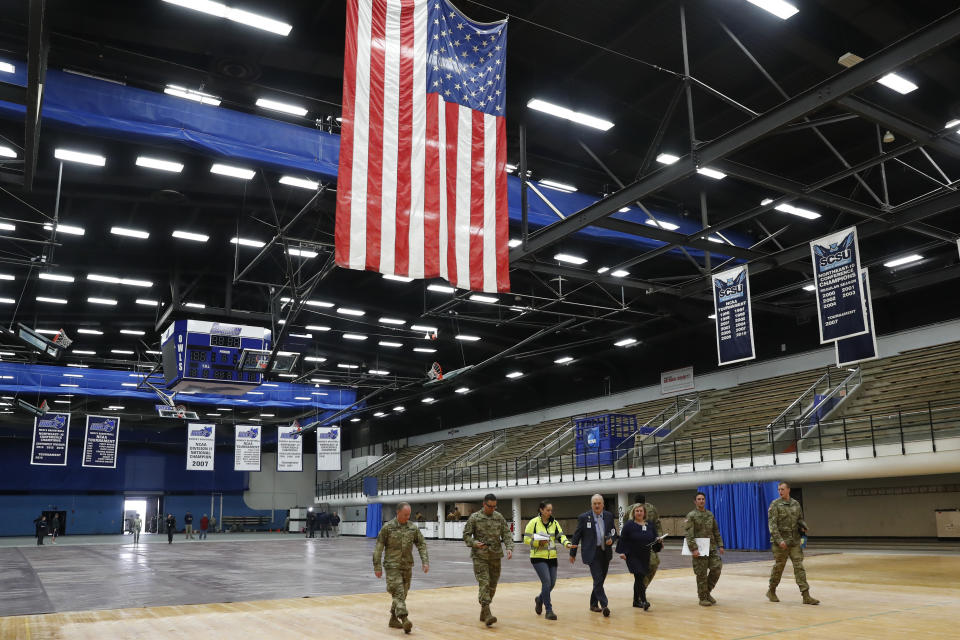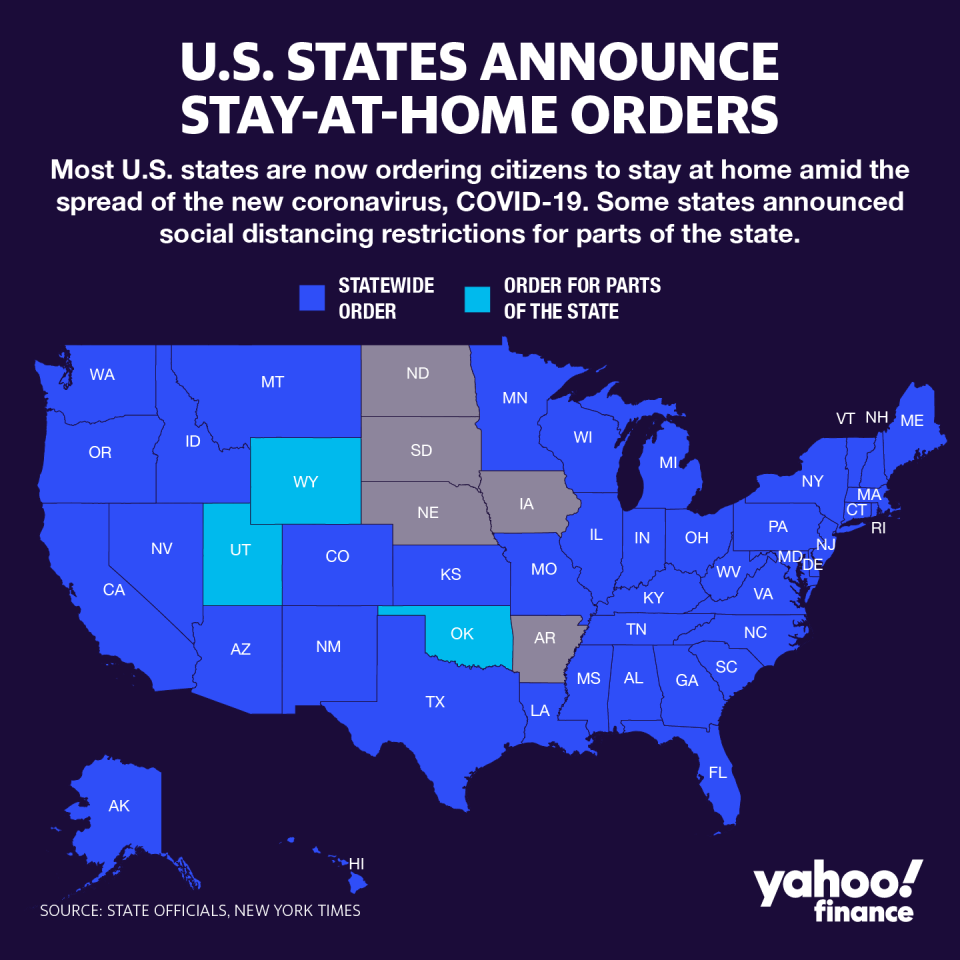Coronavirus lockdown may have this deadly secondary effect
Reopening the U.S. economy too soon will result in additional coronavirus deaths, according to many health experts. Scientists have said prematurely reopening parts of the economy and easing social distancing measures might lead to a new wave of coronavirus cases.
As the White House mulls how and when to reopen the economy, some in the administration, including trade adviser Peter Navarro, argue that the shutdown could be deadlier than the virus itself. “There’s also death involved in keeping it closed. And I’ve gone over this with you, and I believe this so strongly,” said President Trump at the daily coronavirus task force briefing on Wednesday.
As a cardiologist, Dr. Harlan Krumholz knows from experience that the shutdown itself is a deadly threat that can’t be ignored. “This is something we've got to be very sensitive to,” he told Yahoo Finance.
“The virus can be deadly both for its direct and indirect effects. The direct effects are what does the virus actually do if you get infected, what kind of risk are you at,” said Krumholz, a professor of medicine at Yale and the director of the Yale New Haven Hospital Center for Outcomes Research and Evaluation. He explained that the deadly, indirect effects of the coronavirus are the risks to people’s health when they shelter in place and don’t seek needed medical treatment.

A top concern for Krumholz, which he also wrote about in the New York Times, is the alarming drop in heart attack and stroke victims at the Yale New Haven hospital where he works in Connecticut. He explained that prior to the coronavirus pandemic, the emergency department was so full, that patients waited along the walls on gurneys for a bed in the intensive care unit. Since the coronavirus shutdown, the hospital has yet to reach full capacity despite treating nearly 300 coronavirus patients as of April 6.
“In a period of social distancing, people [are] afraid to come to the hospital. We're no longer as doctors...able to see patients in ways that we have traditionally done,” he said. In order to abide by Gov. Ned Lamont’s March 20 order that Connecticut residents shelter in place and stay home, many doctors have been trying to treat patients by offering telemedicine services.
Krumholz says colleagues around the country have also noticed a steep drop in heart attack patients. An informal online poll of cardiologists shows that half of respondents have seen a 40%-60% decrease in heart attack admissions at hospitals where they work.

“Heart attacks are going down in the country and one of our fears is that people are...having chest pains and staying home. Or they’re having severe, acute emergencies and delaying,” said Krumholz. “As a result [people are] putting themselves at greater risk, and that's likely also contributing to an indirect rise in the rate of death in addition to what’s happening directly from the virus.”
Krumholz worries that patients afraid to go to pharmacies may not be accessing the medicines they need. “There's all sorts of secondary effects here that could be at play that put people at risk because they have trouble managing their diabetes or their heart disease, or their heart failure or a whole range of conditions that require them to have easy access to meds and easy access to the healthcare system,” he said.
Despite shelter in place orders throughout the country, Krumholz wants patients suffering from illnesses other than the coronavirus to still feel safe going to hospitals in an emergency because ER doctors could save their lives.
“Don't stay home because you’re afraid, if you've got crushing chest pain, if all of a sudden you're short of breath, if you’re having trouble speaking, symptoms of a stroke, or if your belly is acutely painful,” he said, “This is preventable harm and we do not want that secondary death toll to occur because people were afraid during this period when actually hospitals can care for people safely.”
More from Sibile:
Coronavirus cancellations: Outrage over lack of refunds as 59 million people lost money
Restaurants fear small business sweeteners for coronavirus package won’t be enough
More than one-third of small businesses may not last a month: poll
Ivanka Trump on $2 trillion coronavirus relief: Our mandate is to ‘swing for the fences’
Majority of Americans cut back on spending because of coronavirus concerns
